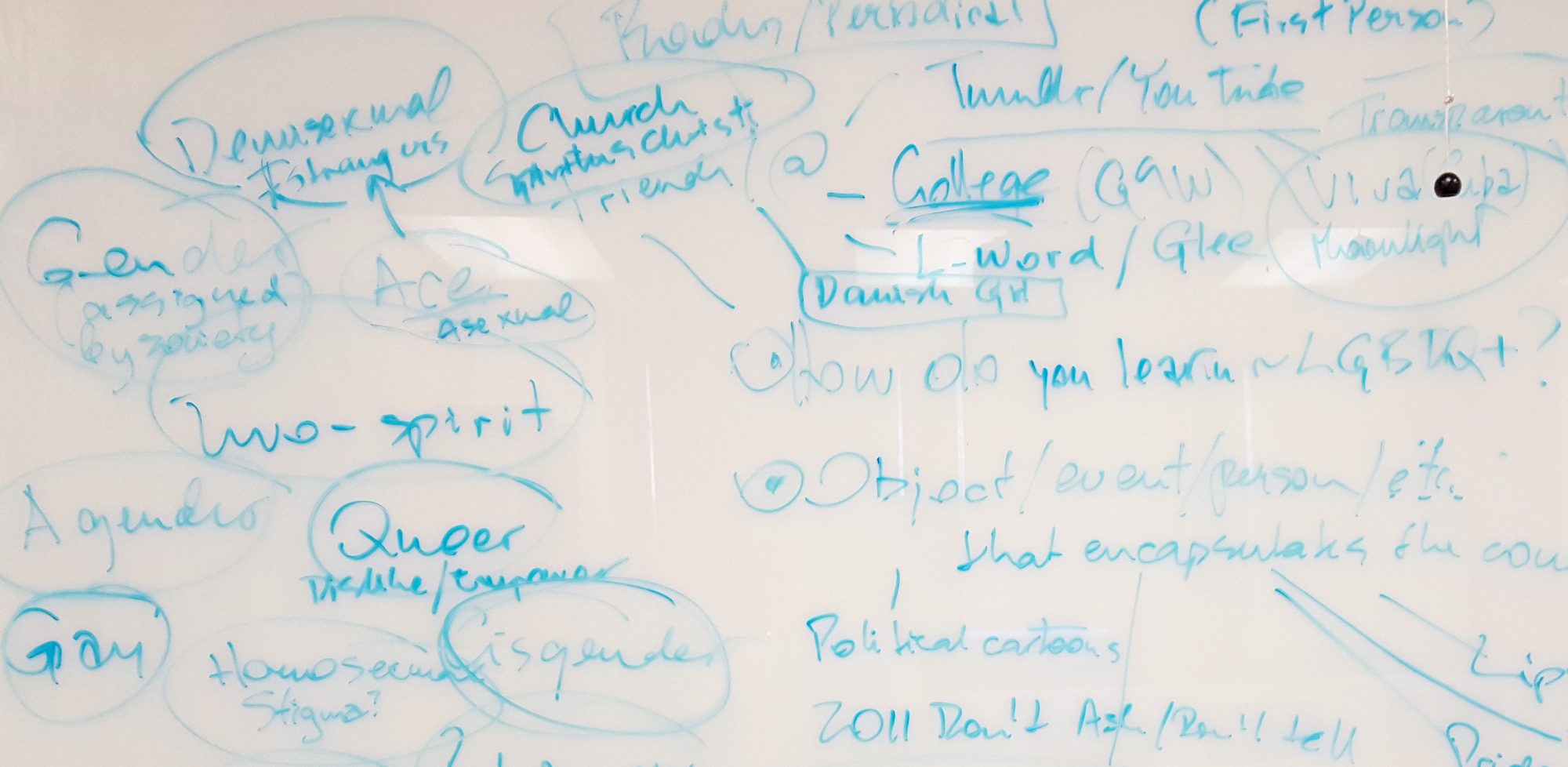I had known that the police raids leading up to the Stonewall rebellion had been going on repeatedly at all sorts of queer venues before the actual rebellion, but I was surprised to hear that during the raids, the police separated people into three separate groups of “Faggots here, dykes here, and freaks over there” (“Bitch on Wheels,” 32, in STAR). My surprise was not because I didn’t expect such a separation, but that I didn’t expect this perception to have gone back that far. It is still a current issue that people try to group trans people (more specifically binary trans people) away from (cis) men and women, even when they’re trying to be inclusive of trans people in general. I remember, for example, hearing about Joel Seligman using the phrase “men, women, and trans people” at one town hall, and he was fiercely criticized for it since it implied that binary trans people were somehow “other than” men or women. I wouldn’t be surprised if this structuring somehow relates back to the mindsets of the police back then.
Prior to this class, most of what I had known about Marsha P. Johnson and Sylvia Rivera was that they considered themselves drag queens (although they were more likely trans women of color in today’s language), that they played a significant role in leading the Stonewall rebellion, and that they have been consistently written out of the picture in favor of stories of non-existent cis white homonormative men. I had also heard that there was a third usually grouped with them, but I cannot remember their name.
Sylvia Rivera was born into a troubled household. At the age of three, her mother committed suicide and tried to kill her as well to escape her drug-dealer husband, and Sylvia was sent off to live with her unloving grandmother. At the age of 10, she left her home and went to 42nd Street, already having gotten involved in sex work. Like most of the drag queens there, she was accustomed to the police harassment, but she managed to avoid actual prostitution charges (“Queens in Exile,” in STAR). It is often believed that at the Stonewall, she threw the first bottle sparking the riots (“The Soapbox”), but she says she only threw the second, and said, “Oh my god, the revolution is finally here!” after it was thrown (“Every Destructive Thing,” “Bitch on Wheels,” in STAR). After that, she continued participating in riots and other activist work, and she and Marsha P. Johnson soon founded STAR, and organization which sought to provide housing, food, bail money, and legal help for trans and other queer people who needed it.
SB
